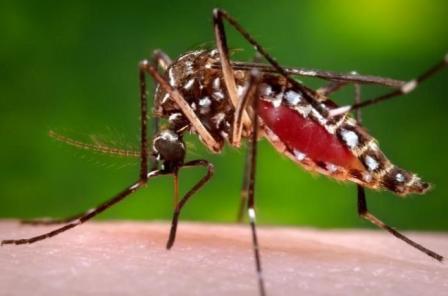This has been one of the wettest monsoon seasons in recent memory, and as such mosquitos are a problem. Accumulations of stagnant water can lead to an increase in the mosquito population, but there are things we all can do to help prevent their impact.
With the exception of the El Rio Preserve, the Town of Marana does not specifically combat mosquitos. At the El Rio Preserve, steps are taken to eliminate the pests. The town has purchased a small boat specifically for the treatment and abatement of Mosquitos, and other pests in the area. Tests done by Pima County have shown that the treatment strategy is working.
Although there are basic steps town employees take to prevent mosquitos on town property, it is up to individual citizens to combat the problem at their own residences.
The American Mosquito Control Association recommends a three-pronged approach to mosquito problems, nicknamed the Three D’s: Drain, Dress, and Defend.
According to the Environmental Protection Agency, easiest way to combat the problem is to remove mosquito habitats. Mosquito larvae needs stagnant water to survive.
Remove Mosquito Habitats
· Eliminate standing water in rain gutters, old tires, buckets, plastic covers, toys, or any other container where mosquitoes can breed. Getting rid of these items will prevent subsequent breeding opportunities.
· Empty and change the water in bird baths, fountains, wading pools, rain barrels, and potted plant trays at least once a week to destroy potential mosquito habitats. stock ornamental pools with top feeding predacious minnows or other native fish that eat mosquito larvae. There are also various larvacides which can be used
· Cleaning the debris from gutters will also eliminate potential breeding grounds. Those with flat roofs or other flat areas, should also check for areas where standing water can accumulate.
· Drain or fill temporary pools of water with dirt.
· Keep swimming pool water treated and circulating.
· Eliminate seepage from cisterns, cesspools, and septic tanks.
· Eliminate standing water around animal watering troughs. Flush livestock water troughs twice a week.
· Check around construction sites or do-it-yourself improvements to ensure that proper backfilling and grading prevent drainage problems.
· Irrigate lawns and gardens carefully to prevent water from standing for several days.
Getting rid of habitats for adult mosquitos is also important. Adult mosquitoes prefer to rest on weeds and other vegetation, so homeowners can reduce the number of areas where adult mosquitoes can find shelter by getting rid of weeds, and mowing the lawn regularly. To further reduce adult mosquitoes harboring in vegetation, insecticides may be applied to the lower limbs of shade trees, shrubs and other vegetation. Products containing synthetic pyrethroids such as deltamethrin and lambda-cyhalothrin have proven effective. Foggers can also be used outdoors to help eliminate mosquitos.
Avoiding contact with mosquitos is also important. While it can be difficult to avoid them while outside, making sure your home is protected is important. Using various structural barriers can prevent mosquitos from getting in your home. Cover all gaps in your walls, doors, and windows to prevent mosquitoes from entering. Make sure window and door screens are in good working order. Completely cover baby carriers and beds with netting.
Of course, being outside is can be difficult to avoid mosquitos, but there are many steps you can take to avoid getting bitten. The easiest is to cut down on exposed skin by wearing long-sleeved shirts, long pants, and socks. Take it a step further by tuck shirts into pants and pants into socks to cover gaps in your clothing where mosquitoes can get to your skin. Use mosquito repellents when necessary and follow label directions and precautions closely. Replace your outdoor lights with yellow "bug" lights, which tend to attract fewer mosquitoes than ordinary lights. The EPA cautions that yellow lights are not repellents, however.


